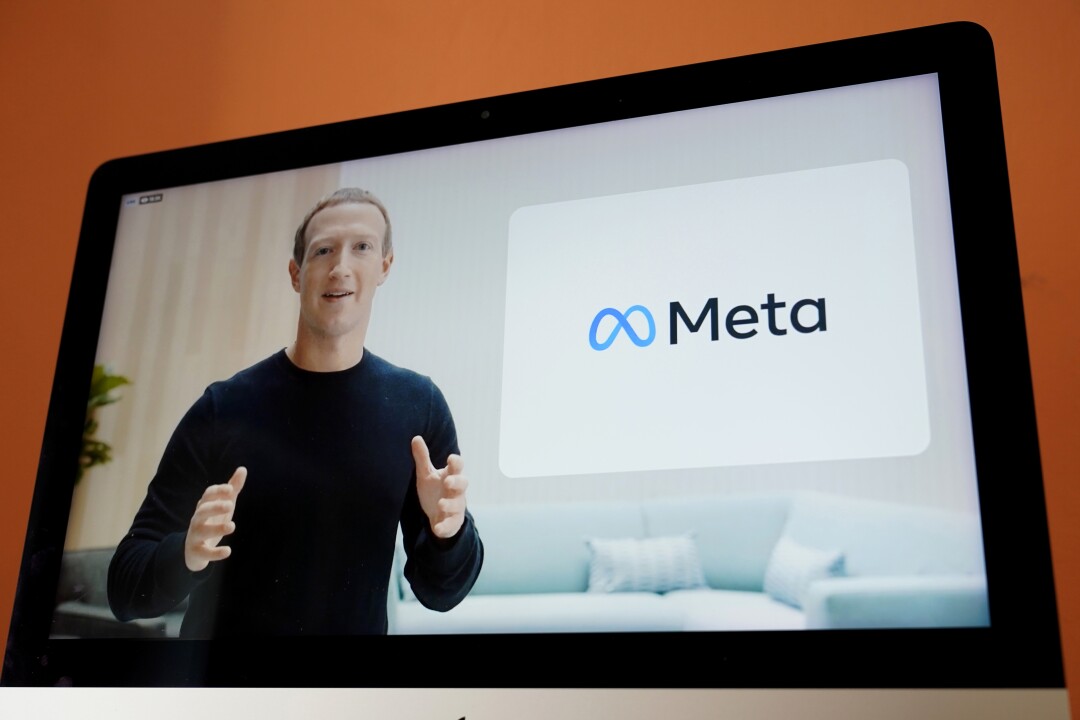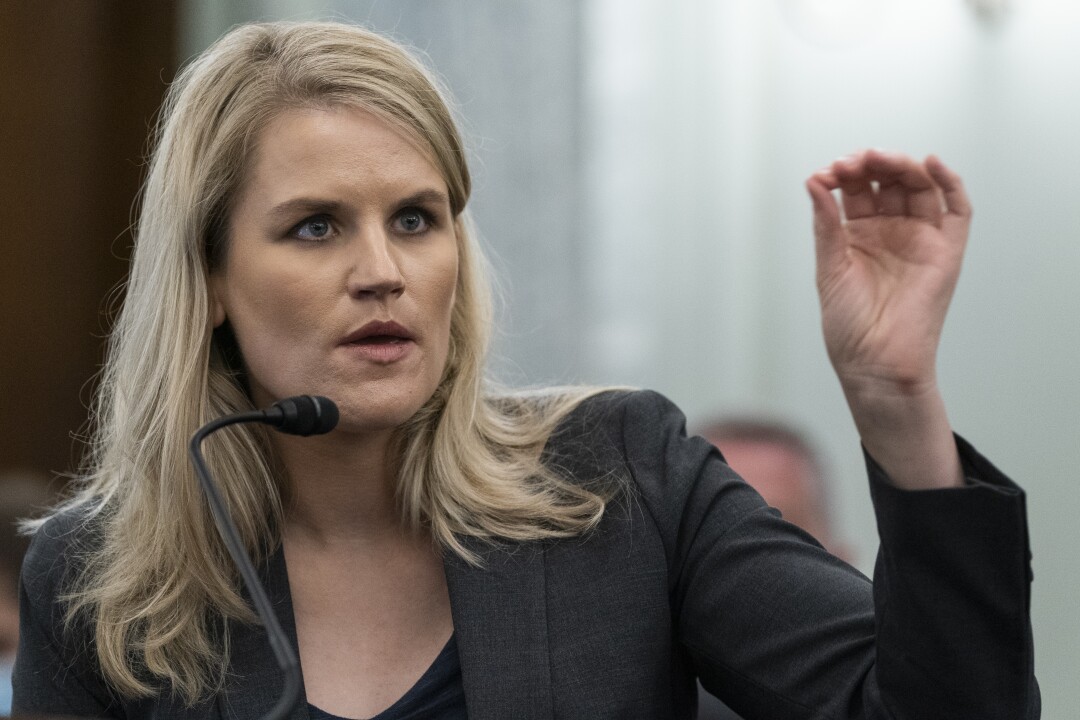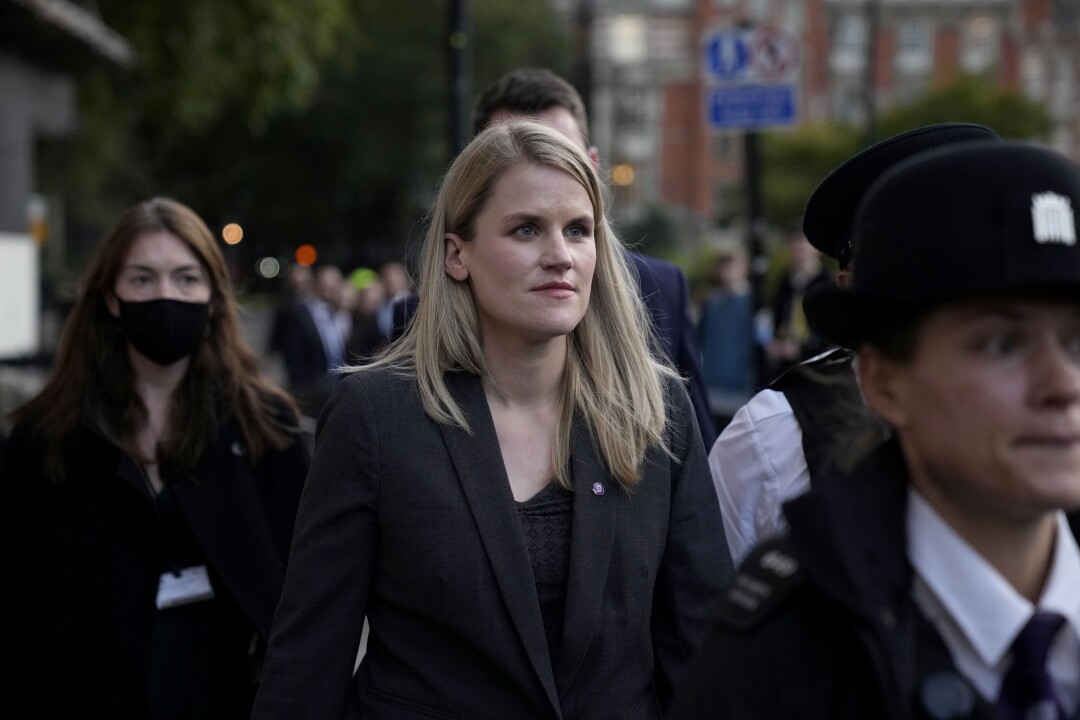What Facebook knew about its Latino-aimed disinformation problem
Written by ABC AUDIO on November 16, 2021
It was October 2020, election conspiracy theories threatened to drag America aside at its seams, and Jessica González was attempting to get some of the highly effective corporations on the planet to take heed to her.
It wasn’t going effectively.
After months of attempting to get on their calendar, González — the co-chief government of media advocacy group Free Press — had lastly managed to safe a gathering with a number of the Fb workers answerable for implementing the social platform’s neighborhood requirements. The problem at hand: the unfold of viral misinformation amongst Latino and Spanish-speaking Fb customers.
Throughout the nation, a pipeline of deceptive media had been pumping lies and half-truths, in each English and Spanish, into native Latino communities. Generally the misinformation mirrored what the remainder of the nation was seeing: fear-mongering about mail-in ballots and antifa vigilantes, or conspiracy theories concerning the deep state and COVID-19. Different occasions it leaned into extra Latino-specific issues, reminiscent of evaluating candidate Joe Biden to Latin American dictators or claiming that Black Lives Matter activists have been utilizing brujería — that’s, witchcraft.

A Fb emblem in Paris in 2017.
(Thibault Camus / Related Press)
A lot of the faux information was spreading on social media, through YouTube, Twitter and, pivotally, Fb, WhatsApp and Instagram. All three are owned by the identical umbrella firm, which just lately rebranded as Meta.
“The identical form of themes that have been displaying up in English have been additionally displaying up in Spanish,” González recalled. “However in English, they have been both getting flagged or taken down altogether, and in Spanish they have been being left up; or in the event that they have been getting taken down, it was taking days and days to take them down.”
Free Press had briefly flagged the issue in July 2020 throughout a gathering with Chief Govt Mark Zuckerberg. González had spent the months since attempting to arrange one other, extra centered dialog. Now, that was really taking place.
In attendance have been Fb’s public coverage director for counterterrorism and harmful group, its world director for danger and response, and several other members of the corporate’s coverage staff, in keeping with notes from the assembly reviewed by The Occasions.
But the speak didn’t go as González had hoped.

Seen on the display of a tool in Sausalito, Calif., Fb CEO Mark Zuckerberg publicizes the corporate’s new identify, Meta, throughout a digital occasion on Oct. 28.
(Eric Risberg / Related Press)
“We had loads of particular questions that they utterly did not reply,” she stated. “As an example, we requested them, who’s in command of guaranteeing the integrity of content material moderation in Spanish? They’d not inform us the reply to that, or even when that individual existed. We requested, what number of content material moderators do you may have in Spanish? They refused to [answer] that query. How many individuals that reasonable content material in Spanish are based mostly within the U.S.? … No reply.”
“We have been constantly met a lot the identical method they meet different teams which are engaged on disinformation or hate speech,” she added: “With a bunch of empty guarantees and a scarcity of element.”
Free Press wasn’t alone find Fb to be a lower than excellent associate within the struggle towards Spanish-language and Latino-centric misinformation. Days after the election, it and nearly 20 different advocacy teams — a lot of them Latino-centric — despatched a letter to Zuckerberg criticizing his firm’s “inaction and enablement of the focusing on, manipulation, and disenfranchisement of Latinx customers” through the election, regardless of “repeated efforts” by the signatories to alert him of their issues.
“Fb has not been clear in any respect,” stated Jacobo Licona, a disinformation researcher on the Latino voter engagement group Equis Labs. Furthermore, he stated, it “has not been cooperative with lawmakers or Latinx-serving organizations” engaged on disinformation.
However inside Fb, workers had been elevating crimson flags of their very own for months, calling for a extra sturdy company response to the misinformation campaigns their firm was facilitating.
That’s a through-line in a trove of company experiences, memos and chat logs just lately made public by whistleblower and former Fb worker Frances Haugen.

Former Fb worker Frances Haugen speaks throughout a listening to of the Senate Commerce, Science, and Transportation Subcommittee on Shopper Safety, Product Security, and Knowledge Safety, on Capitol Hill on Oct. 5 in Washington.
(Alex Brandon / Related Press)
“We’re not good at detecting misinfo in Spanish or a lot of different media sorts,” reads one such doc, a product danger evaluation from February 2020, included in disclosures made to the Securities and Trade Fee and supplied to Congress in redacted kind by Haugen’s authorized counsel. A consortium of stories organizations, together with the Los Angeles Occasions, obtained the redacted variations obtained by Congress.
The identical doc later provides, “We are going to nonetheless have gaps in detection & enforcement, esp. for Spanish.”
The subsequent month, one other inner report warned that Fb had “no insurance policies to guard towards focused suppression (e.g., ICE at polls),” alluding to issues that Latino voters can be dissuaded from displaying as much as vote in the event that they have been advised, falsely, that immigration authorities can be current at polling websites.
The report color-coded that concern shiny crimson: excessive danger, low readiness.
Later, in an evaluation of the corporate’s means to deal with viral misinformation, the report added: “Gaps in detection nonetheless exist (e.g. varied media sorts, Spanish posts, and many others.)”
A 3rd inner report pointed to racial teams with low historic voter participation charges as one of many principal subsets of Fb customers dealing with an elevated danger from voter disenfranchisement efforts. Latinos are among these teams.
These issues would show prescient because the election drew nearer.
“Disinformation focusing on Latinos in English and Spanish was taking place throughout the nation, particularly in locations with increased populations of Latinos,” together with California, Texas, Florida, New York and Arizona, stated Licona, the disinformation researcher. “Fb was — and nonetheless is — a serious participant.”
Firm spokesperson Kevin McAlister advised The Occasions that Fb took “numerous steps” forward of the 2020 election to fight Spanish-language misinformation.
“We constructed a Spanish model of our Voting Data Heart the place folks may discover correct details about the election, expanded our voter interference insurance policies and enforced them in Spanish and added two new U.S. fact-checking companions who overview content material in Spanish on Fb and Instagram,” McAlister stated. “We invested in inner analysis to assist groups proactively determine the place we may enhance our merchandise and insurance policies forward of the U.S. 2020 elections.”
Different broader measures introduced on the time included not accepting any new political adverts within the week earlier than election day and eradicating misinformation about polling circumstances within the three days earlier than election day.
By election day, the corporate reported having removed greater than 265,000 Fb and Instagram posts which violated its voter interference insurance policies, and added warning labels to greater than 180 million situations of fact-checked misinformation.
In a June 2020 publish on his private Fb web page, Zuckerberg promised to “ban posts that make false claims saying ICE brokers are checking for immigration papers at polling locations, which is a tactic used to discourage voting.”
The corporate additionally stated that 4 of its 10 fact-checking companions within the U.S. deal with Spanish-language content material.
But the issues dealing with Latinos on Fb, WhatsApp and Instagram lengthen past anybody election cycle, Haugen’s leaks reveal.

Fb whistleblower Frances Haugen leaves after giving proof to the joint committee for the Draft On-line Security Invoice, as a part of British authorities plans for social media regulation, on the Homes of Parliament, in London on Oct. 25.
(Matt Dunham / Related Press)
In 2019, Fb revealed a examine internally taking a look at efforts to discourage folks from collaborating within the U.S. census, and the way customers perceived the corporate’s response to these efforts.
Among the many posts that customers reported to Fb have been ones “telling Hispanic[s] to not fill out the shape;” “telling Hispanics to not take part in answering questions on citizenship;” saying that individuals “can be in peril of being deported in the event that they participated;” implying the federal government would “get” immigrants who participated; and “discouraging ethnic teams” from collaborating.
Fb’s researchers have additionally examined the likelihood that the abundance of anti-immigrant rhetoric on the location takes an outsized toll on Latino customers’ psychological well-being.
Whereas discussing one examine with colleagues on an inner message board, a researcher commented: “We did need to assess if susceptible populations have been affected in a different way, so we in contrast how Latinx [users] felt compared with the remainder of the contributors, given the publicity to anti-immigration hateful rhetoric. We discovered that they expressed increased ranges of disappointment and anger, particularly after seeing violating content material.”
In different message boards, workers fearful that the corporate’s merchandise may be contributing to broader racial inequities.
“Whereas we presumably don’t have any insurance policies designed to drawback minorities, we undoubtedly have insurance policies/practices and emergent habits that does,” wrote one worker in a discussion board referred to as Integrity Concepts to Battle Racial Injustice. “We must always comprehensively examine how our choices and the way the mechanics of social media do or don’t assist minority communities.”
One other publish in the identical racial justice group inspired the corporate to develop into extra clear about XCheck, a program designed to provide distinguished Fb customers higher-quality content moderation which, in observe, exempted many from following the foundations. “XCheck is our technical implementation of a double customary,” the worker wrote.
(Other than a number of upper-level managers and executives, particular person Fb workers’ names have been redacted from the paperwork given to The Occasions.)
As these inner messages recommend, Fb — an enormous firm with tens of hundreds of workers — isn’t a monolith. The leaked paperwork reveal substantial disagreement amongst employees about all kinds of points plaguing the agency, with misinformation distinguished amongst them.
The 2020 product danger evaluation signifies one such space of dissent. After noting that Spanish-language misinformation detection stays “very low-performance,” the report provides this suggestion: “Simply preserve attempting to enhance. Addition of assets is not going to assist.”
Not everybody was glad with that reply.
“For misinfo this doesn’t appear proper … curious why we’re saying addition of assets is not going to assist?,” one worker requested in a remark. “My understanding is we’ve got 1 half time [software engineer] devoted on [Instagram] detection proper now.”
A second remark added that focused misinformation “is a giant hole. … Flagging that we’ve got zero assets accessible proper now to assist any work that could be wanted right here.” (Redactions make it unimaginable to inform whether or not the identical worker was behind each feedback.)
In communications with the skin world, together with lawmakers, the corporate has burdened the power of its Spanish-language content material moderation quite than the issues raised by its personal workers.
“We conduct Spanish-language content material overview 24 hours per day at a number of world websites,” the corporate wrote in Might in a statement to Congress. “Spanish is without doubt one of the most typical languages used on our platforms and can be one of many highest-resourced languages in relation to content material overview.”

Mark Zuckerberg, chairman and chief government of Fb, speaks on the CEO summit through the annual Asia Pacific Financial Cooperation (APEC) discussion board in Lima, Peru, in 2016.
(Andrew Harnik / Related Press)
Two months later, almost 30 senators and congressional members sent a letter to the corporate expressing concern that its content material moderation protocols have been nonetheless failing to stanch the stream of Spanish-language misinformation.
“We urge you to launch particular and clear information demonstrating the assets you at present dedicate to guard non-English audio system from misinformation, disinformation, and unlawful content material in your platforms,” the group advised Zuckerberg, in addition to his counterparts at YouTube, Twitter and Nextdoor.
Zuckerberg’s response, which once more emphasized the assets and manpower the corporate was pouring into non-English content material moderation, left them underwhelmed.
“We obtained a response from Fb, and it was actually extra of the identical — no concrete, direct solutions to any of our questions,” stated a spokesperson for Rep. Tony Cárdenas (D-Pacoima), one of many lead signatories on the letter.
In a subsequent interview with The Occasions, Cárdenas himself stated that he thought of his relationship with Fb “principally worthless.” Throughout congressional hearings, Zuckerberg has “stored attempting to provide this picture that they’re doing every little thing that they will: they’re making large strides; all that they will do, they’re doing; the investments that they’re making are profound and enormous and acceptable.”
“However once you undergo his solutions, they have been very gentle on particulars,” Cárdenas added. “They have been extra aspirational, and barely apologetic, however not factual in any respect.”
It’s a typical sentiment on Capitol Hill.
“On-line platforms aren’t doing sufficient to cease” digital misinformation, Sen. Amy Klobuchar (D-Minn.) stated in a press release, and “in relation to non-English misinformation, their observe document is even worse. … You may nonetheless discover Spanish-language Fb posts from November 2020 that promote election lies with no warning labels.”

Rep. Alexandria Ocasio-Cortez (D-N.Y.) listens as Home Speaker Nancy Pelosi (D-San Francisco) speaks throughout a information convention on June 16 on the Capitol in Washington.
(J. Scott Applewhite / Related Press)
“I’ve stated it earlier than and I’m saying it once more: Spanish-language misinformation campaigns are completely exploding on social media platforms like Fb, WhatsApp, and many others.,” Rep. Alexandria Ocasio-Cortez (D-N.Y.) stated in a latest tweet. “It’s placing US English misinfo campaigns to disgrace.”
Latino advocacy teams, too, have been important. UnidosUS (previously the Nationwide Council of La Raza) just lately cut ties with Fb, returning a grant from the corporate out of frustration with “the function that the platform has performed in deliberately perpetuating merchandise and insurance policies that hurt the Latino neighborhood.”
But for all the priority from inside — and criticism from outdoors — Spanish is a comparatively well-supported language — by Fb requirements.
One leaked memo from 2021 breaks down totally different nations by “protection,” a metric Fb makes use of to trace how a lot of the content material customers see is in a language supported by the corporate’s “civic classifier” (an AI device answerable for flagging political content material for human overview). Per that report, the one Latin American nation which has lower than 75% protection is non-Spanish-speaking Haiti. The U.S., for its half, has 99.45% protection.
And a report on the corporate’s 2020 bills signifies that after English, the second-highest variety of hours spent on work associated to measuring and labeling hate speech went towards Spanish-language content material.
Certainly, lots of the disclosures which have come out of Haugen’s leaks have centered on protection gaps in different, less-well-resourced languages, particularly in the Middle East and Asia.
However to these in search of to higher defend Latinos from focused disinformation, Fb’s assertions of adequate assets — and the issues voiced by its personal workers — elevate the query of why it isn’t doing higher.
“They at all times say, ‘We hear you, we’re engaged on this, we’re attempting to get higher,’” stated González. “After which they simply don’t do something.”
— to www.sandiegouniontribune.com
The post What Facebook knew about its Latino-aimed disinformation problem appeared first on Correct Success.






